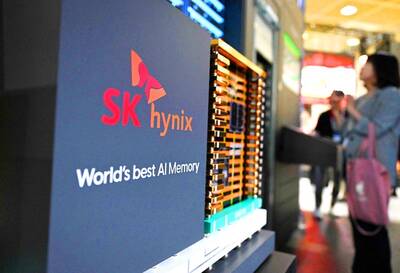Taiwan Land Development Corp (TLDC, 台灣土地開發) yesterday announced it has partnered with WPC Media Services to build a digital data bank aimed at serving media and entertainment companies at a lower cost.
The partnership is the latest move by the local developer to realize the “Huallywood” project, a studio park in Hualien County that is intended to be the nation’s answer to Hollywood.
The cloud-based data bank is the result of months of research aided by Canada-based Cameron Thomson Group, a provider of outsourced business development solutions for the media, entertainment and technology sectors.
The joint venture aims to create an end-to-end ecosystem in Hualien to assist global film and TV producers by facilitating content development, production, distribution and monetization, TLDC chairman Chiu Fu-sheng (邱復生) said.
WCP Media is a Swiss-based entertainment software and services company that manages, markets, and distributes content to business partners and clients.
Business-to-business asset management and logistics of high bandwidth and lower compression media during production and distribution still rely mainly on physical transfers using materials such as hard discs or tapes, WCP vice president Giovanni Contri said in Taipei.
Some processing laboratories have made partial transitions to digital media production and distribution, but the market is highly fragmented, Contri said.
This fragmented approach creates confusion and slows efficiency, while the flow of materials is insecure and requires much higher costs, Contri said.
In addition, piracy risks escalate, adding pressure on how the digital content is stored, handled and transferred, Contri said.
The WCP platform supports feature film and TV series production, as well as finished catalogue distribution, cutting production costs by 20 to 40 percent, Contri said.

Quanta Computer Inc (廣達) chairman Barry Lam (林百里) is expected to share his views about the artificial intelligence (AI) industry’s prospects during his speech at the company’s 37th anniversary ceremony, as AI servers have become a new growth engine for the equipment manufacturing service provider. Lam’s speech is much anticipated, as Quanta has risen as one of the world’s major AI server suppliers. The company reported a 30 percent year-on-year growth in consolidated revenue to NT$1.41 trillion (US$43.35 billion) last year, thanks to fast-growing demand for servers, especially those with AI capabilities. The company told investors in November last year that

United Microelectronics Corp (UMC, 聯電) forecast that its wafer shipments this quarter would grow up to 7 percent sequentially and the factory utilization rate would rise to 75 percent, indicating that customers did not alter their ordering behavior due to the US President Donald Trump’s capricious US tariff policies. However, the uncertainty about US tariffs has weighed on the chipmaker’s business visibility for the second half of this year, UMC chief financial officer Liu Chi-tung (劉啟東) said at an online earnings conference yesterday. “Although the escalating trade tensions and global tariff policies have increased uncertainty in the semiconductor industry, we have not

Power supply and electronic components maker Delta Electronics Inc (台達電) yesterday said it plans to ship its new 1 megawatt charging systems for electric trucks and buses in the first half of next year at the earliest. The new charging piles, which deliver up to 1 megawatt of charging power, are designed for heavy-duty electric vehicles, and support a maximum current of 1,500 amperes and output of 1,250 volts, Delta said in a news release. “If everything goes smoothly, we could begin shipping those new charging systems as early as in the first half of next year,” a company official said. The new

SK Hynix Inc warned of increased volatility in the second half of this year despite resilient demand for artificial intelligence (AI) memory chips from big tech providers, reflecting the uncertainty surrounding US tariffs. The company reported a better-than-projected 158 percent jump in March-quarter operating income, propelled in part by stockpiling ahead of US President Donald Trump’s tariffs. SK Hynix stuck with a forecast for a doubling in demand for the high-bandwidth memory (HBM) essential to Nvidia Corp’s AI accelerators, which in turn drive giant data centers built by the likes of Microsoft Corp and Amazon.com Inc. That SK Hynix is maintaining its